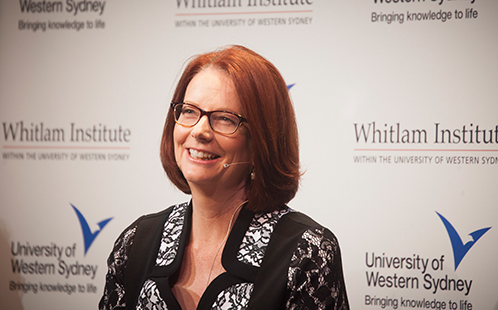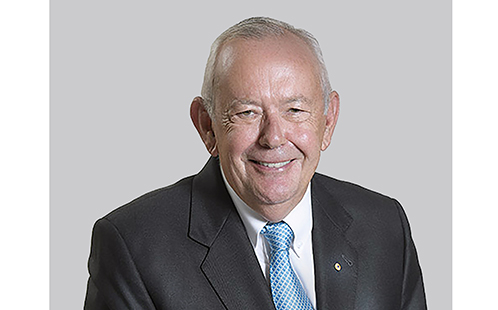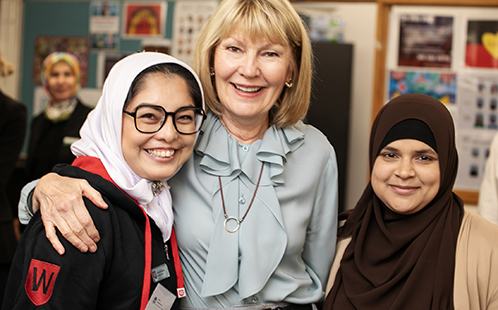Julia Gillard: The politics, the policies and a very public life

The Honourable Julia Gillard visits a full-house in Parramatta.
Former Prime Minister Julia Gillard reflected on her time in public life: the policies, the issues and the experiences that defined her time in the cauldron of Australian politics, from her election as the member for Melbourne on 3 October 1998, through her term as Australia's 27th Prime Minister
and her departure from Parliament on 7 September 2013, at a special
Whitlam Institute
event at Parramatta Riverside Theatres.
The Whitlam Institute within the University of Western Sydney is committed to public conversation and is delighted that the Honourable Julia Gillard explored her story of the road to reform, within the intimacy of the Riverside Theatre's Lennox Theatre.
Many may think they know the 'Gillard story' but the publication of the Honourable Julia Gillard's memoir 'My Story' offers us an opportunity to step back and to reflect with her on our country's recent history and its ramifications.
While the political drama of Julia Gillard's ascent to the Prime Ministership, the leadership wars and the theatre of the hung parliament dominated her term as Prime Minister, there has been meagre consideration of the nation-changing policies she drove, nor of the barriers to reform
for contemporary Australian governments. Yet the legislative and policy record demands attention: education reform at every level from pre-school to university; an emissions trading scheme; health care, aged care and dental care reform; commencing the nation's first ever national scheme to care for people
with disabilities; restructuring the telecommunications sector and embarking upon a national broadband network; foreign policy re-alignment with Australia's guiding policy paper, Australia in the Asian Century and a re-orientation of Australia's alliance with the United States and our relationship with
China.
The Gillard Government secured Australia's election to the United Nations Security Council. Behind these reforms lie disappointments, frustrations, base politics and a more profound struggle about the type of Australia we might want and our nation's place in the world.
Ends
1 October 2014
Latest News

Western Sydney University receives transformational donation to support LGBTIQA+ community
Western Sydney University has welcomed a philanthropic donation from The Brennan Lynch Foundation.

Western Sydney University ranks among world’s best for 23 subjects
The University has been named as one of the world’s top universities for the study of 23 subjects in the latest edition of the QS World University Rankings by Subject, including being ranked in the top 50 for Nursing.

Western Sydney University receives landmark $7.9 million philanthropic gift from Harvey Norman to launch leadership academy, empowering young women in Western Sydney
Western has welcomed a landmark donation to establish the Harvey Norman® Young Women’s Leadership Academy Led by Katie Page.
Mobile options:

